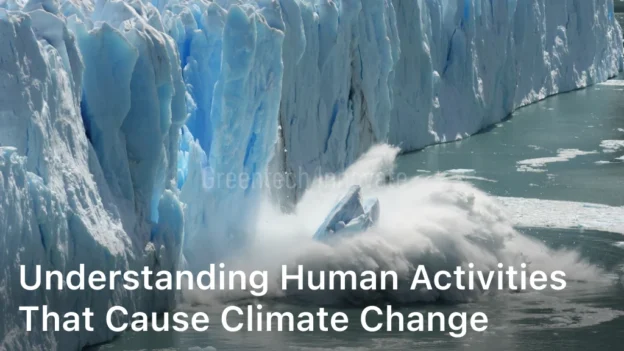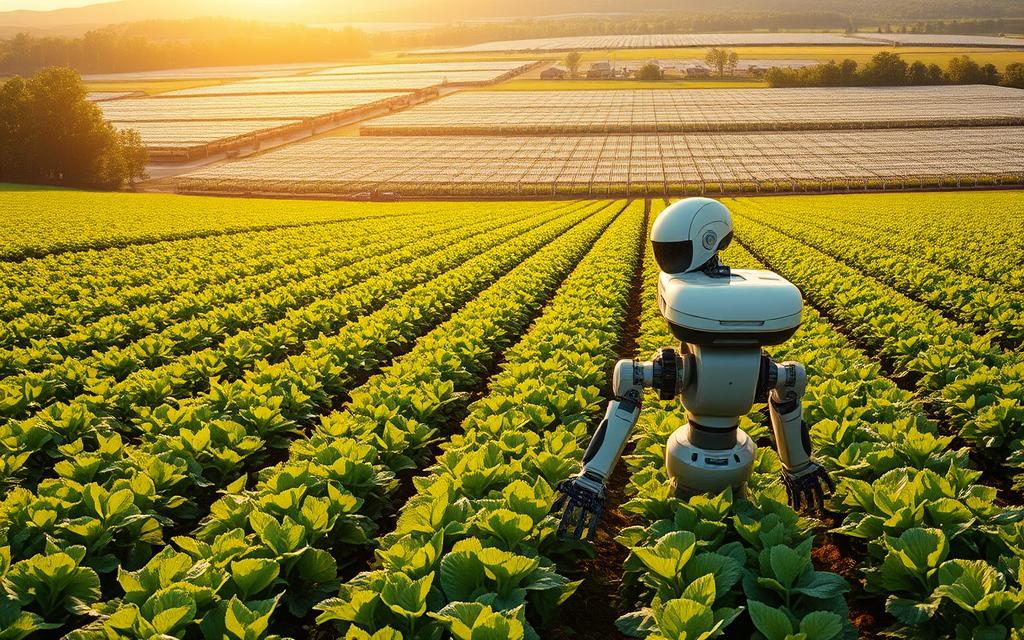greentechinnovate.com. Understanding Human Activities That Cause Climate Change. Discover how our daily routines contribute to climate change. Uncover the human activities that cause climate change and what we can do to help. Climate change is a complex issue that affects the world we live in today and poses a significant threat to future generations. Human activities are primarily responsible for the adverse effects of climate change. These activities range from everyday actions to large-scale industrial processes and are responsible for the emission of greenhouse gases that contribute to global warming and climate change. Understanding human activities that cause climate change is crucial for mitigating their impact and working towards a sustainable future. Understanding Human Activities That Cause Climate Change Key Takeaways Human activities are primarily responsible for the adverse effects of climate change. Greenhouse gas emissions from human activities contribute to global warming and climate change. Understanding human activities that cause climate change is crucial for mitigating their impact and working towards a sustainable future. By making sustainable choices in our daily lives, we can actively participate in mitigating climate change and ensuring a healthier planet for future generations. Collective action is essential to address the global issue of climate change. The Role of Fossil Fuel Consumption When it comes to human activities that cause climate change, one of the most significant contributors is fossil fuel consumption. Burning coal, oil, and natural gas releases greenhouse gases into the atmosphere, trapping heat and causing the planet’s average temperature to rise. In fact, according to research, greenhouse gas emissions from burning fossil fuels account for approximately 65% of all human-caused emissions. Our reliance on fossil fuels has been the driving force behind the industrial and technological advancements of the past century. However, the downside of this progress is the significant environmental impact it has had, particularly on our climate. To better understand the impact of fossil fuel consumption on climate change, let’s take a look at some key statistics: Fuel Source Carbon Dioxide Emissions per Unit Coal 0.215 metric tons Oil 0.161 metric tons Natural Gas 0.056 metric tons As the table illustrates, coal is the most carbon-intensive fuel source, followed by oil and natural gas. Considering the impact of fossil fuel consumption on climate change, it’s crucial that we reduce our reliance on these non-renewable resources and transition to cleaner energy sources like wind, solar, and hydropower. Additionally, we can take steps to reduce our carbon footprint by making sustainable choices in our daily lives, such as using public transportation, reducing energy usage at home, and supporting businesses that prioritize environmental sustainability. “We cannot afford to ignore the impact of fossil fuel consumption on climate change. By transitioning to cleaner energy sources and making sustainable choices in our daily lives, we can work towards a more sustainable future for ourselves and future generations.” Deforestation and Its Impacts In our previous section, we discussed how fossil fuel consumption is a major contributor to climate change. However, it’s not just the burning of fossil fuels that has an impact on our planet. Deforestation is another human activity that significantly contributes to climate change. Deforestation is the process of clearing forests for agriculture, logging, and urbanization. According to the Food and Agriculture Organization (FAO), global deforestation continues at an alarming rate of 10 million hectares per year. Deforestation in tropical regions, such as the Amazon rainforest and the Congo basin, has severe consequences for the planet. The impact of deforestation on climate change Forests act as carbon sinks, absorbing carbon dioxide from the atmosphere and storing it in their trunks, branches, and leaves through the process of photosynthesis. When forests are destroyed, this stored carbon is released back into the atmosphere in the form of carbon dioxide, contributing to the greenhouse effect and global warming. Deforestation is responsible for approximately 15% of global greenhouse gas emissions, which is equivalent to the emissions from the entire transportation sector. It’s clear that deforestation is a significant contributor to climate change, and action must be taken to mitigate its impact. The causes of deforestation The primary causes of deforestation are agricultural expansion, logging, and urbanization. Agricultural expansion for soy, palm oil, and cattle ranching is responsible for approximately 80% of deforestation. Unsustainable logging practices, which involve cutting down trees faster than they can regrow, are also significant contributors to deforestation. Urbanization, which involves clearing forests to build homes and infrastructure, is a growing concern in many countries. The consequences of deforestation Deforestation has severe consequences for both the environment and human populations. When forests are destroyed, it disrupts the carbon cycle, leading to increased atmospheric carbon dioxide levels and global warming. Deforestation also contributes to soil erosion, loss of biodiversity, and changes in regional and global climate patterns. Deforestation can also have harmful effects on communities that rely on forests for their livelihoods. Indigenous communities, in particular, are disproportionately affected by deforestation, as they rely on forests for food, medicine, and cultural practices. What we can do to mitigate deforestation There are several ways we can take action to address deforestation and its impact on climate change. One of the most effective ways is to support sustainable agriculture practices that prioritize forest conservation. This includes supporting companies that use sustainable palm oil and soy products, as well as reducing our consumption of meat and dairy products. Another way to address deforestation is to support forest conservation programs that protect important forests and promote reforestation. This could involve supporting organizations that work with local communities to protect forests or participating in reforestation efforts in your local area. Overall, it’s clear that deforestation is a major contributor to climate change. By taking action to mitigate its effects, we can work towards a more sustainable future for all. Industrialization and Greenhouse Gas Emissions Our rapid industrialization has undoubtedly contributed to environmental degradation and climate change. The significant increase in greenhouse gas emissions primarily from manufacturing processes and the burning of fossil fuels has led to a global rise in temperatures and detrimental impacts on our planet. The industries responsible for significant emissions include the production of cement, steel, aluminum, and chemicals, among others. The burning of fossil fuels for energy





